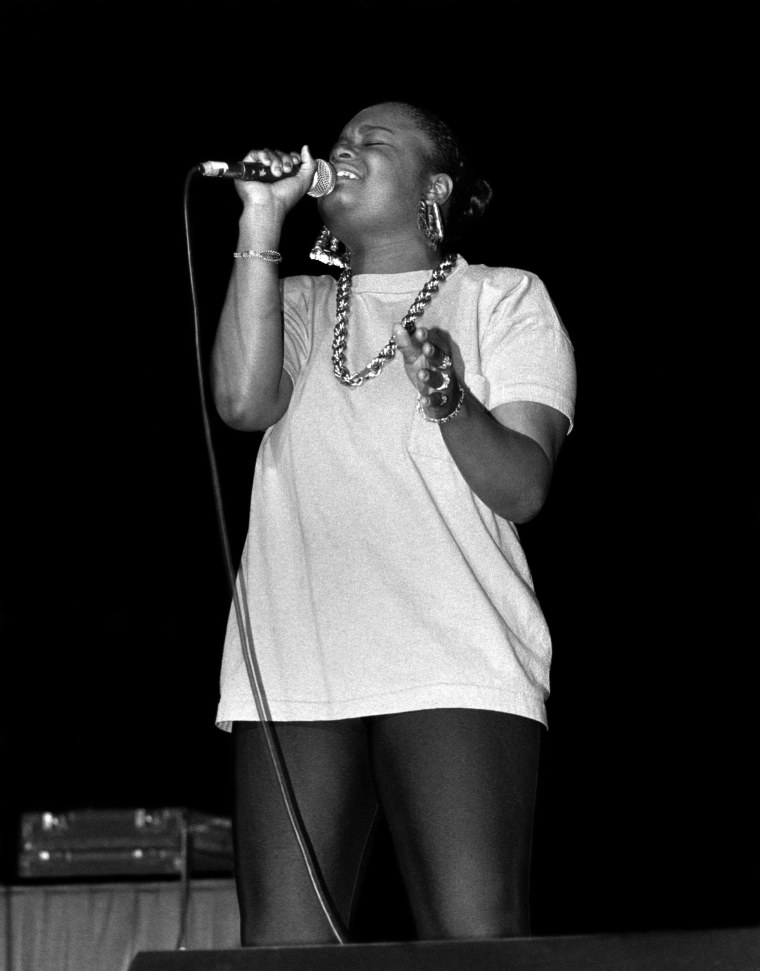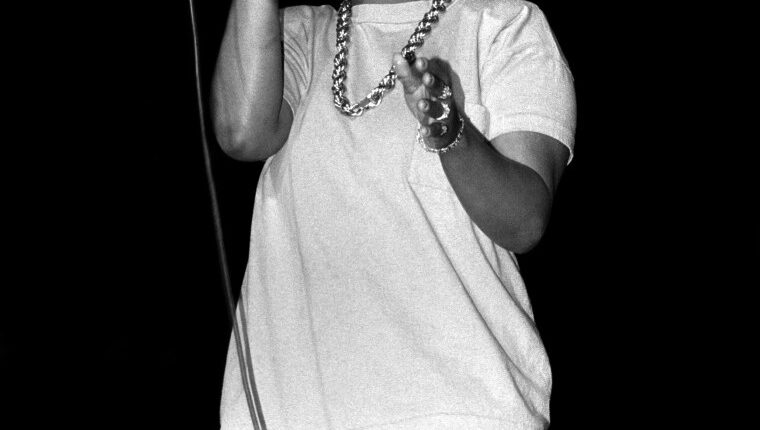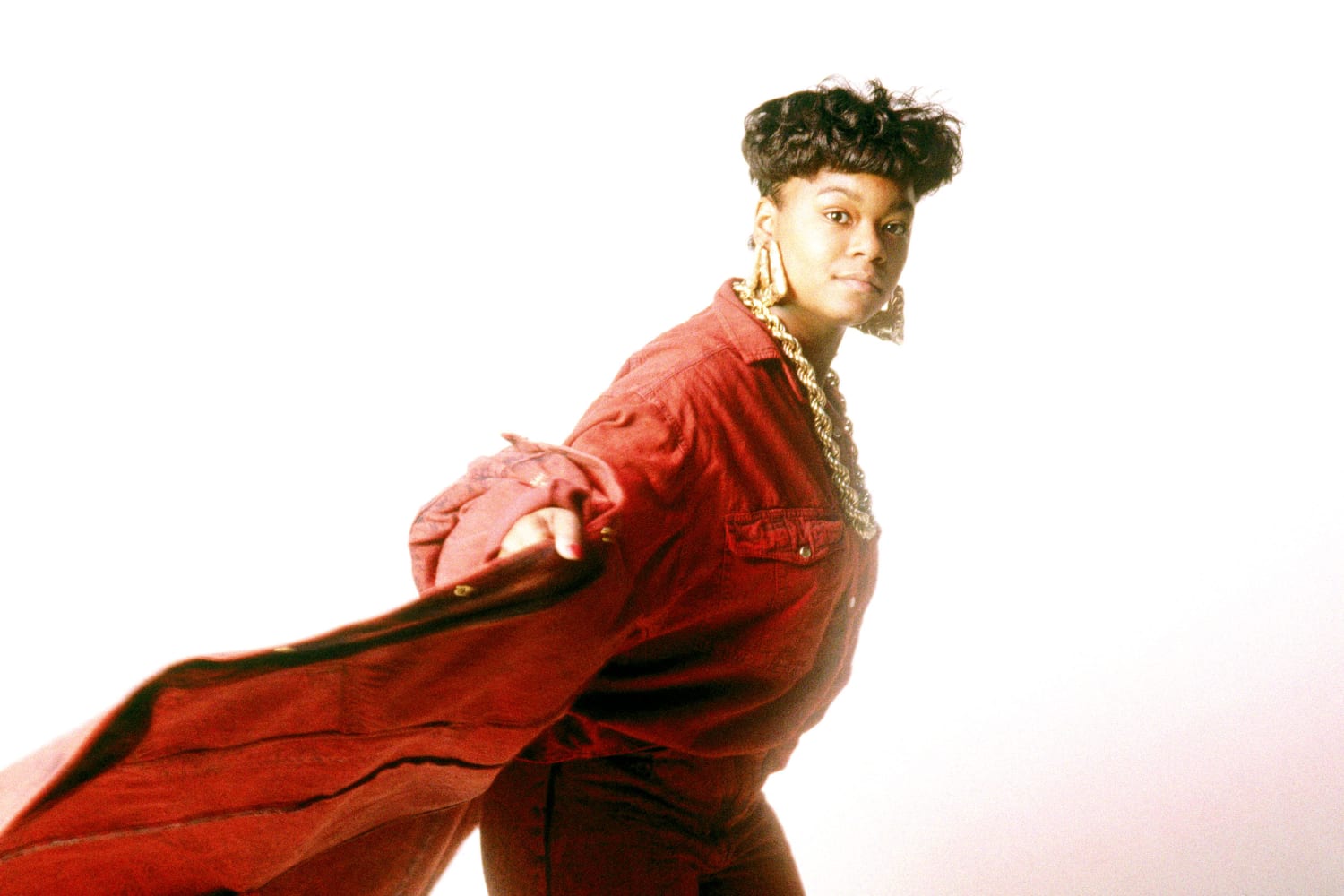Speaking to NBC News, Shanté, who now runs Mind Over Matter, a nonprofit organization supporting young girls at risk of not graduating, including those in foster care, reflected on the endurance of hip-hop as the genre celebrates its 50th anniversary this August.
“They said this wasn’t gonna last five years, that it wasn’t going to last 10 years,” Shanté said. “Hip-hop is not going anywhere.”
Shanté’s early contributions to the art form came back to the spotlight following her 2018 Netflix biopic “Roxanne Roxanne.” The film is a portrait of her persona as an emcee and rap pioneer, and the struggles she endured in her romantic and familial relationships.
To the dismay of naysayers, Shanté staked a claim in the underground battle rap scene as a teenager, with a distinctive Queens flow she described as “relaxed.”
“Each borough has its own identity,” she said. “Hip-hop itself was a reflection of what you saw — what was going on around you and what you were dealing with in your neighborhood.”
In her case, that was the Queensbridge projects in Long Island City, Queens. “I grew up in the projects with a million-dollar view,” she said. “That million-dollar view gave us a million-dollar mindset.”
“It was very hard to impress us,” Shanté added. That attitude was apparent in her lines from “Roxanne’s Revenge”: “I’m conceited, never beated, never heard of defeated / I’m rockin’ to the beat-a.”
Among her bravado and self-assured lyrics, Shanté’s music also contained rallying calls of empowerment for Black women. In her single “Independent Woman,” she rapped, “You don’t need a man / All you need is to know you can.”
Shanté survived domestic abuse, among other hardships as a teenager mother.
“Growing up without a father, I understand what this world can do to a young girl when she doesn’t have a father figure around,” she said. “The things that she starts to look forward to or she starts to look towards to make that a replacement or to fill that void.”

Some of her music provided a space for her to pass on hard-learned advice to other young women. “You don’t have to go through this if I tell you these lessons and things I’ve been through; you can still have your independence,” she said.
She also continues to share her experiences on her SiriusXM radio show, “Have a Nice Day,” which airs on LL Cool J’s Rock the Bells Radio.
At this point in her life, Shanté said she considers herself to be like an “auntie.” When she considers hip-hop’s younger slate of female rappers, she can’t pick a favorite.
“One day, it can be a Rapsody day and then the next day, it can be a Cardi B day,” she continued, also shouting out Remy Ma and Megan Thee Stallion. “Some days can be righteous days; some days can be ratchet days.”
Shanté said she embraces all her “hip-hop sisters.”
“Black women, I think we all have an inner emcee in us. We just do. It’s whether or not you tap into her and you bring her out and let your creativity shine,” she said.
“For a very long time, we weren’t able to use our voice. We were always speaking to ourselves and talking to ourselves. If you hold that in generation after generation, it comes out in rhymes.”
Source: | This article originally belongs to Nbcnews.com










